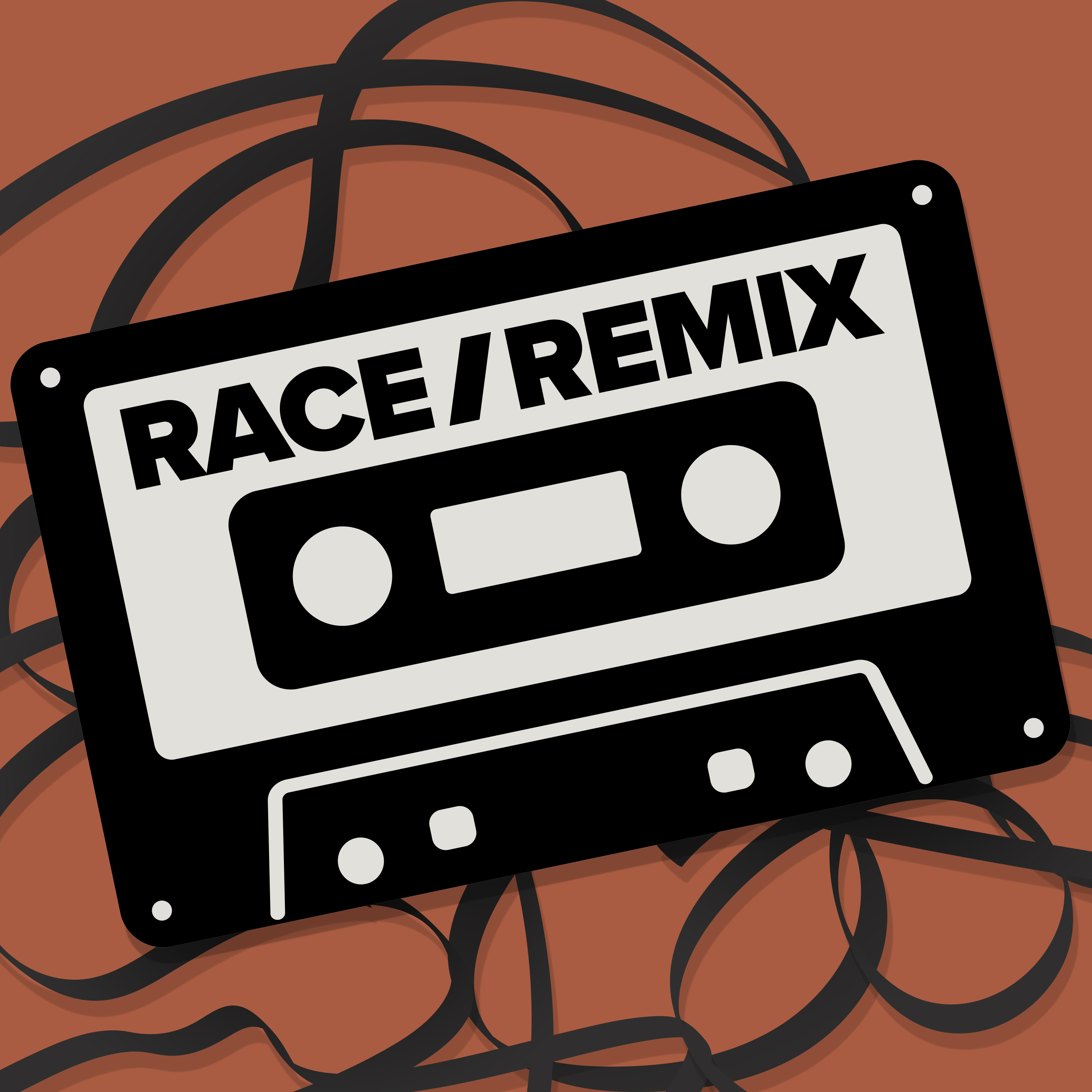
2K
Downloads
13
Episodes
What is racial justice in the arts? How can artists, performers, and producers inspire new possibilities? Through deep conversations with guests, Race/Remix shapes the creative landscape of racial justice. Spanning topics in media, culture, healthcare, justice systems, immigration, and education, Season 1 offers critical insights by pairing creators and thinkers across disciplines and ideas. Share in the provocations. We invite you to join the conversation. Our first season launches this December 2023. Race/Remix is produced by Racial Justice Studio on the traditional lands and territories of the O’odham and the Yaqui people at the University of Arizona. Committed to diversity and inclusion, the University strives to build sustainable relationships with sovereign Native Nations and Indigenous communities through education offerings, partnerships, and community service. Find out more on the Race/Remix website, building knowledge one conversation at a time. Cover art and logo design by Deborah Ruiz.
What is racial justice in the arts? How can artists, performers, and producers inspire new possibilities? Through deep conversations with guests, Race/Remix shapes the creative landscape of racial justice. Spanning topics in media, culture, healthcare, justice systems, immigration, and education, Season 1 offers critical insights by pairing creators and thinkers across disciplines and ideas. Share in the provocations. We invite you to join the conversation. Our first season launches this December 2023. Race/Remix is produced by Racial Justice Studio on the traditional lands and territories of the O’odham and the Yaqui people at the University of Arizona. Committed to diversity and inclusion, the University strives to build sustainable relationships with sovereign Native Nations and Indigenous communities through education offerings, partnerships, and community service. Find out more on the Race/Remix website, building knowledge one conversation at a time. Cover art and logo design by Deborah Ruiz.
Episodes

Tuesday Sep 23, 2025
Episode 12 Curating the Future: Rujeko Hockley
Tuesday Sep 23, 2025
Tuesday Sep 23, 2025
Many societies, including the United States, are experiencing a period of significant polarization and a loss of faith in institutions. So, it might be surprising to learn the American public still places a lot of trust in museums, according to research. This is true across partisan lines. What is it that makes museums relevant and why are people drawn to them?
Co-hosts Jennifer Saracino and Sama Alshaibi speak with curator Rukejo Hockley of the Whitney Museum of American Art to find out more about what happens inside art museums. They delve into Rujeko’s journey of becoming a curator, working with contemporary artists, and co-curating the 2019 Whitney Biennial and earlier projects at the Brooklyn Museum. In this episode, we learn:
- Why art museums are as much about the future as they are about the past,
- What relationship and responsibility curators have to communities reflected within the exhibitions they shape, and
- How controversy can lead to personal and professional growth.
Rujeko Hockley is the Arnhold Associate Curator at the Whitney Museum of American Art in New York City. Previously, she was Assistant Curator of Contemporary Art at the Brooklyn Museum and Curatorial Assistant at The Studio Museum in Harlem. She works with artists and artworks that are breaking new ground, including such projects as the Amy Sherald: American Sublime (2025), We Wanted a Revolution: Black Radical Women, 1965-85 (2017), and many other notable exhibitions. She serves on the boards of directors for Art Matters, Institute for Freedoms, and Museums Moving Forward, and the advisory board of Recess.

Thursday Jun 05, 2025
Episode 11 When Love Over Rules: Hank Willis Thomas
Thursday Jun 05, 2025
Thursday Jun 05, 2025
The need for civic dialogue has never been as important as it is today. In the US and around the world, communities are facing complex problems. Finding solutions is contentious. How can art help bring people together across lines of difference to talk, listen, and understand the myriad forces shaping civic life? We bring you a conversation with Hank Willis Thomas, a boundary-spanning artist whose work grapples with hard truths. Our co-hosts are professors Sama Alshaibi and Jennifer Saracino. They speak with Hank about his exhibition, LOVERULES. The show has over 90 of his works, including photography, sculpture, installation, and printmaking, representing two decades of a socially-engaged art practice that invites audiences to look more carefully and act more collectively. In this episode, we learn why Hank believes all art is political; how he infuses a collaborative ethos to create opportunities for civic dialogue; and how to tap into the radical power of love to heal individuals and communities on the brink of crisis.
A recipient of numerous honors, including the Gordon Parks Foundation Fellowship (2019) and The Guggenheim Fellowship (2018), Hank Willis Thomas is influenced by social history and an unflinching concern for equality in all aspects of his creative practice. He co-founded For Freedoms an artist-led organization that models and increases creative civic engagement, discourse, and direct action. His artwork has been shown internationally and is collected by major museums across the nation. The exhibition LOVERULES can be viewed through June 21, 2025, at the University of Arizona Museum of Art, in partnership with the Jordan Schnitzer Family Foundation.
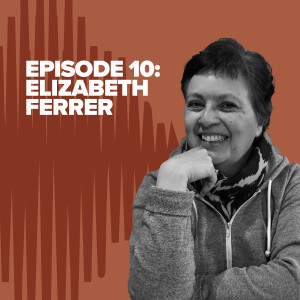
Thursday Feb 06, 2025
Thursday Feb 06, 2025
Have you ever wondered how art becomes activism? We bring you a conversation with curator and writer Elizabeth Ferrer, who takes us from the Chicano murals of her east Los Angeles childhood to groundbreaking exhibitions on Latinx photography. Guest hosts Gia Del Pino and Lizzy Guevara speak with Elizabeth about her retrospective on Louis Carlos Bernal, a trailblazing Chicano photographer who centered Mexican-American lives and traditions. Through striking, deeply human portraits, Bernal’s images challenge stereotypes and expand the canon of American photography. In this episode, learn about how photographs do more than reflect the culture as it is; how self-representation can dignify and transform how we see ourselves and our communities; and how images can transport the spirit of an individual subject into a cultural movement.
Elizabeth Ferrer recently curated the exhibition Louis Carlos Bernal: Retrospectiva, a landmark survey of one of the most significant American photographers of the twentieth century, which is on view through March 15, 2025 at the Center for Creative Photography at the University of Arizona. The exhibition is accompanied by a book authored by Ferrer and co-published with Aperture, Louis Carlos Bernal: Monografía.
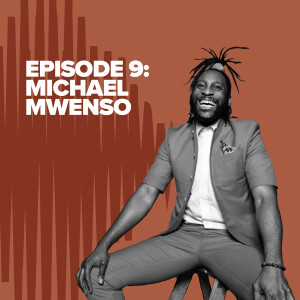
Wednesday Dec 11, 2024
Episode 9 Ancestral Sounds and the Language of Music: Michael Mwenso
Wednesday Dec 11, 2024
Wednesday Dec 11, 2024
Music is everywhere. It’s in our cars, doctors’ offices, shopping malls, movies, and video games. There’s no question that music is ubiquitous, but is anyone really listening? What does it mean to truly listen? What happens when we tune in, not only to the soundwaves of music, but also the vibrations of community, the echoes of ancestors, and the whispers of dreams? For musician and storyteller Michael Mwenso, Black music is a portal to self-discovery and ancestral connection. It is a living, breathing language that bridges the past, present, and future. He sits down with artist Semoria Mosley for a conversation about the art of listening, a collective practice that promotes community, healing, and spirituality. Their conversation will change how you listen to music.
Michael Mwenso is a bandleader, co-founder of Electric Root, and EMMY Award winning creator. He devotes his energy to spreading the message of Black music to uplift, heal, and empower individuals and divided communities across the US.
This episode is co-hosted by Semoria Mosley, an artist and School of Art MFA student at the University of Arizona.
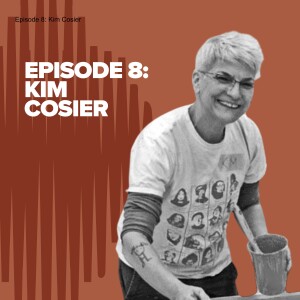
Thursday Oct 24, 2024
Episode 8 Artists for Educational Justice: Kim Cosier
Thursday Oct 24, 2024
Thursday Oct 24, 2024
Schools have long been a battlefield for racial and social justice. What role do artists play in pushing for reforms in education? Kim Cosier, an art educator and member of the national network of Art Build Workers, explains non-violent practices of using art in service of social justice movements. This conversation is a window into field-tested practices for artists working side-by-side with students, teachers’ unions, state associations, and community organizations. Through her personal stories, learn what it means to embrace the identity of an art worker and how to have fun while leveraging failure and discomfort in the struggle for systemic change.
Kim Cosier is Professor of Art Education in the Peck School of the Arts at the University of Wisconsin-Milwaukee. She is a member of Art Build Workers, an activist art collective, and founder and director of the Milwaukee Visionaries Project, an award-winning media production/literacy program for urban youth.
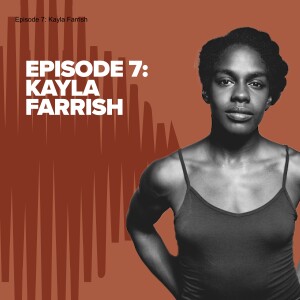
Wednesday Sep 25, 2024
Episode 7 Creating Magic Out of Hopelessness: Kayla Farrish
Wednesday Sep 25, 2024
Wednesday Sep 25, 2024
How does one transform trauma into possibility? Trained dancer and multidisciplinary artist Kayla Farrish explores police brutality and death afflicting Black communities in America. Through movement research, she finds a radical imagination that powers the African American struggle to do more than survive from enslavement in the colonial era to systemic oppression by modern institutions. Black people have wrought hope and art from trauma. Inspired by this, Farrish lovingly reclaims the Black body’s histories and its representation in contemporary dance collaborations, film, and sound score. She offers performers strategies for challenging traditional dance industry norms.
Kayla Farrish creates captivating works on stage and film that combine dance theater performance, storytelling, and sound score. She is based in New York City and was named “Break Out Star of 2021” by the New York Times. A recent alumna of the School of Dance at The University of Arizona, she has emerged as an artist to watch in the years ahead.
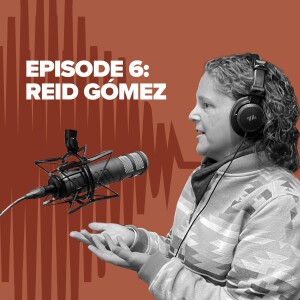
Monday Feb 26, 2024
Episode 6 Making the Story Speak: Reid Gómez
Monday Feb 26, 2024
Monday Feb 26, 2024
Can language practices break down the separation between “us” and “them”? Reid Gómez, a native speaker of Black vernacular English and Navlish (Navajo-English), shares her multi-lingual writing practice. To “make the story speak,” she criss-crosses the boundaries between languages, embracing various linguistic structures and vocabularies simultaneously. Her writing moves away from oppositional colonial frameworks and toward a more fluid poetics of relation. This allows each of us to perceive one another as related rather than separated. In this final episode of Season 1, she explores the idea of “quantum entanglements” and shows how the relationship between writing, translation, and the nature of being are not fundamentally different.
Dr. Gómez is a writer and scholar from San Francisco, CA. She currently is an assistant professor at the University of Arizona. Her latest writing project, The Web of Differing Versions: Where Africa Ends and America Begins, engages with Silko studies, Indigenous studies and Critical Black studies.
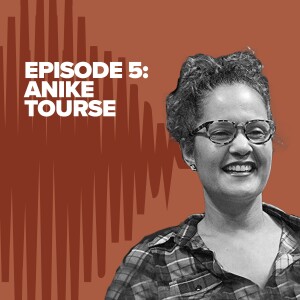
Wednesday Jan 31, 2024
Episode 5 Everything Goes Back to an Immigrant: Anike Tourse
Wednesday Jan 31, 2024
Wednesday Jan 31, 2024
What is it like to navigate a world where “no papers” means no identity and no public recognition? For immigrants traversing such a world, are human connections even possible when faced with forced family separation and deportation? Anike Tourse's filmmaking brings audiences into the human dimension of navigating the complexities of US immigration. Through collaboration with the Coalition for Humane Immigrant Rights and other organizations, she makes work that raises awareness about immigrant contributions to society.
Anike Tourse is a writer, director, actor, and producer based in Los Angeles. She has written for One Life To Live and Girlfriends, which are among the first television series to primarily feature a multiracial and socioeconomically diverse cast of characters. She wrote, directed, and starred in the 2023 film America’s Family that sheds light on the tumultuous experience of a family whose teenage child is arrested following a raid by U.S. Immigration and Customs Enforcement agency.
